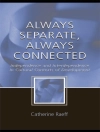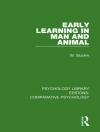Evaluation is crucial to the development and sustainability of Arts Therapy and Arts & Health practices.
This guide supports practitioners in their quest to integrate thorough evaluation procedures in their everyday practices by providing practical guidance for designing, planning and implementing bespoke evaluation projects.
Based on the authors’ experience of designing and realising evaluation projects and running training workshops, a range of suggestions are offered for developing appropriate timelines and collection tools, ensuring organisational diplomacy, and managing what can be a delicate balance of truth, fact and perception.
This guide will help practitioners to evaluate their services and projects by taking into consideration the unique profile of the practice, the workplace, clients, project participants, and sectors.
Cuprins
Foreword by Mike White. Introduction. Evaluation Basics. Phase 1. Planning. Phase 2. Developing Data Collection Tools. Phase 3. Collecting Data and Supplementary Material. Phase 4. Processing Data and Supplementary Material. Phase 5. Drafting Outputs. Phase 6. Finalising and Disseminating Outputs. Interlude: A Note on Ethics. Conclusion. References. Index.
Despre autor
Camilla Farrant trained as a music therapist at Nordoff Robbins (London, UK) after reading Music at Christ’s College, Cambridge University and studying the cello and piano at the Royal Academy of Music. She is the founder of and music therapist for The Music Therapy Tree, an organisation that provides music therapy to vulnerable children in mainstream education. She works as a research assistant at Nordoff Robbins, and performs professionally with The Massive Violins.












